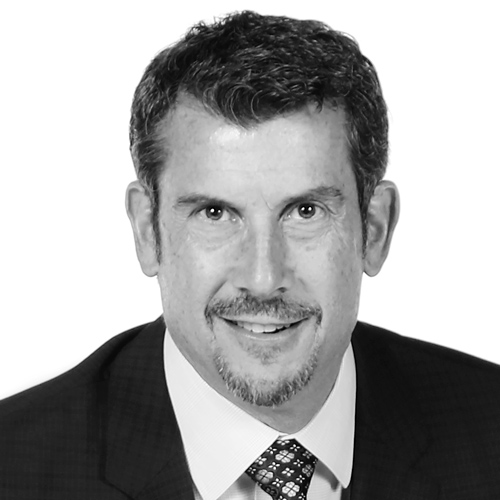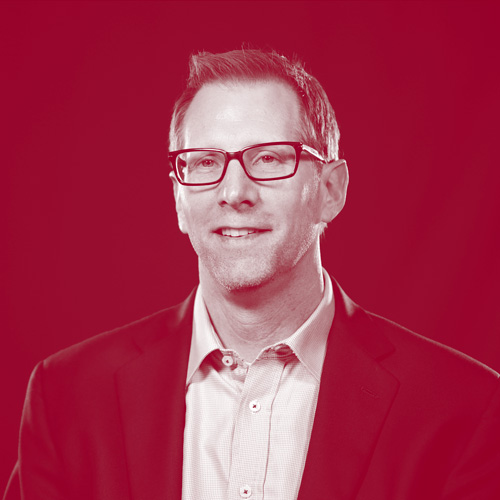The adventure sports business is driven by passionate consumers. Based in Irvine, California, La Jolla Group has successfully grown niche enthusiast brands such as O’Neill, Hang Ten, and Spiritual Gangster because its CEO shares that passion.
Daniel Neukomm turned his interest in action sports into a career sixteen years ago, when he was a senior at the University of Vermont. At the time, he competed on the International Freeskiers and Snowboarders Association (IFSA) tour. “It’s open-face, big-mountain free skiing,” he explains. “I never did well, but I enjoyed it.”
Neukomm did much better at seizing a business opportunity. His thirst for big-mountain skiing had him traveling to where the big mountains were: Utah. But he had a problem when he got there. “I got altitude sickness every time I went, and there was no solution at the time,” he says. “I could either leave the mountain or breathe supplemental oxygen.”
The only people who had easy access to supplemental oxygen then were elderly people with respiratory problems. To get it, he’d need a prescription. Neukomm was undeterred. “I knew pilots flying above twelve thousand feet were required to use supplemental oxygen all the time,” he recalls. “Aviation-grade oxygen isn’t regulated by the FDA, but it has the same benefit.”
Plus, it was easier to acquire. With his own problem solved, Neukomm could have stopped there—but he didn’t. While in Utah, competing in IFSA races, he sought agreements with resorts to supply guests with supplemental oxygen. He made a solid case, quantifying the value of his service by estimating the lost revenue of altitude-sick skiers who went elsewhere for vacations.
It worked. When he graduated in 2001, Neukomm was off to the Wasatch Mountains to start his supplemental oxygen service, Mountain Oxygen. Unfortunately, he launched during one of the worst periods in history for the tourism industry. He also realized his plan of opening an oxygen bar at ski slopes wasn’t what the market needed.
“Mountain Oxygen quickly evolved into an equipment-renting business, renting the machines used to fill oxygen tanks to customers,” he says. “They used the oxygen in their hotel rooms the first three nights of their stay to acclimate to the altitude.”
Eventually, Neukomm signed an agreement with the Aspen Skiing Company to supply Colorado resorts with his service. Because Mountain Oxygen was the only game in town, every resort signed a noncompete agreement and the company grew from there. Neukomm sold off the business in 2006.
Living in resort towns and skiing one hundred days a year was certainly memorable, but the most important takeaway for Neukomm is what he learned in the first few years of his career. Neukomm says Mountain Oxygen had to be a scrappy business to make it after the tourism downturn. Lucky for him, he was too young to know better and plunged headlong into the business anyway.
“I maxed out five credit cards,” he recalls. “For the first two years, I had to work other jobs to make ends meet while we got it started. We had some great wins and huge losses when I didn’t know if I would make payroll.”
Struggling out of the gate was a common narrative among many entrepreneurs at the time. Unlike them, however, Mountain Oxygen wasn’t a well-funded tech start-up. “I can’t imagine Facebook having many concerns about making payroll,” Neukomm says.
The struggles, though, made him a conservative business operator, taking a more practical approach to running a business as opposed to making big and complicated moves to make the business appear sophisticated.
The approach has paid off at La Jolla Group, which Neukomm joined in 2013. In the time between Mountain Oxygen and La Jolla Group, he earned an MBA at the International School of Management and worked in a middle-market private equity group in Silicon Valley. His first introduction to La Jolla Group came when the company invited him to serve on its board of directors.
“At the time, the action sports industry had really only known an era of upward and onward,” Neukomm says. “It had just produced a couple billion-dollar brands, and the people running them were the ones who started them.”
The retail climate, however, had shifted. The period of meteoric growth—when suppliers could ship the wrong orders and retailers would still sell it all—was over. Growth was a matter of details.
“Retail got tough, and action sports became a mainstream sector at the mercy of mainstream retail dynamics,” Neukomm says. “La Jolla Group had to be objectively and proactively managed.”
While he remained passionate about action sports, the conservative business operator in him set up a rigorous analytical process to measure every single aspect of the business.
“Everything changed,” Neukomm says. “We were able to get microclarity on everything we did and understand the rationale behind it. We had objective and relevant rationales for how decisions got made. That’s the overarching lens through which everything else took shape.”
Neukomm can now apply his approach to another fast-changing facet of the action sports industry: marketing. La Jolla Group’s seven lifestyle brands are largely sold through retailers, but consumers now demand access to the brands instead of relying on retailers to deliver the messages.
“I think that’s part of a broader culture shift influenced by technology,” Neukomm explains. “Consumers have been motivated and trained to have almost unlimited transparency on pricing and brand positioning.”
Few leaders in the action sports industry are more capable to deliver what action sports consumers want. Neukomm isn’t just a sharp CEO who’s proven himself as an entrepreneur; he’s a passionate consumer himself.

